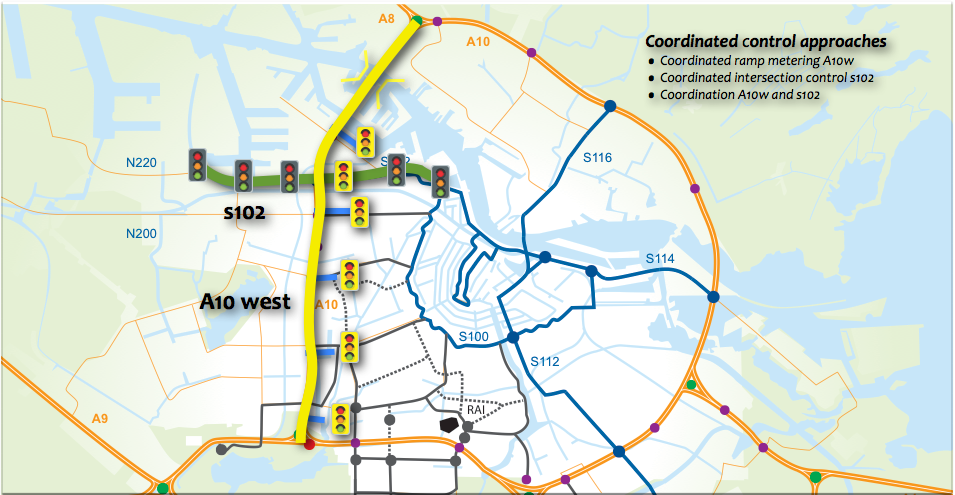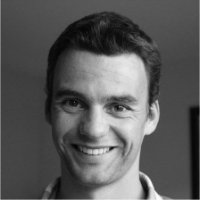Integrated Traffic Management within a regional environment
Subject
The road network performance degrades when congestion sets in at the freeway (causing a drop in its capacity) or when queues are spilling back beyond bifurcation points (causing hindrance to vehicles that do not need to travel along the active bottleneck). The reduced network outflow related to these phenomena can be prevented or postponed by storing bottleneck-oriented vehicles temporarily elsewhere in the network by realizing coordination between available traffic management measures. However, by holding back traffic elsewhere in the network, also delays are caused to vehicles that do not have to travel along the bottleneck.
This research deals on the on hand with the design of coordinated traffic control concepts (coordinated ramp metering and intersection control) that can be operationalized and that properly deal with freeway and urban bottlenecks. On the other hand, a thorough evaluation is made on where and to what extent it is beneficial to store vehicles given prevailing network conditions.
Scientific challenges
In literature various optimal control approaches are proposed that should be able to determine integrated control signals that result in system optimality. However, such approaches are extremely complex and have high computational demands, making operationalization on a large scale currently unfeasible. Hence, the scientific challenge of this research is to develop comprehensible heuristic control strategies that unambiguously target improved network performance, based on a thorough understanding of the involved system variables and their interaction mechanisms.

Figure 1: example of the various coordination concepts for the region of Amsterdam, with a) coordinated ramp metering along the freeway, b) coordinated intersection control along the urban arterial, and c) integrated control between the ramp and intersection at the connections.
Societal relevance
The designed coordination approaches and strategic insights are well suited for operationalization, which in turn leads to improved performance of the road network, and hence, a reduction of mobility related societal costs.
